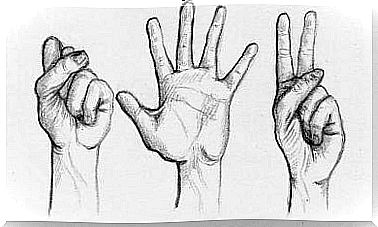Toxic Mothers

The difference between a happy person who develops to his full potential and one who doubts everything can be found in his childhood.
Studies have shown that, since pregnancy, babies perceive sounds coming from the outside and their mother’s emotions. Some women, depending on the emotional environment in which they find themselves, develop feelings of rejection towards their baby during pregnancy, which can increase if postpartum depression is presented. In most cases, this is just a passing situation.
Why do some mothers treat their children in a harmful way?
One explanation may be that they too were abused in childhood, when they learned that the world is, by definition, an unsafe place. Thus, the behavior of these mothers ends up being the same as they witnessed as children. Interestingly, when they were abused, some told themselves that they would never do the same to their children. So why do they act like that? Because this is unconscious behavior. What they hated most becomes automatic behavior. That’s what they learned.
A toxic mother is controlling; I use comparisons and public humiliation as a method of control, because she’s been through that too. When a mother has more children, depending on her position, she may identify with one of them, directing her preferences to him and despising the others.
That’s when the comparison appears. There is no weapon more destructive than the unfairness of a comparison. Exalting one, diminishing another. She has the greed of having an ally among her children, who can justify her behavior. You need to form an alliance with other family members to exercise control.
Manipulation is another face of toxic behavior in parents. The mother usually plays the victim to generate feelings of guilt in her children, especially when they become adults and make their own decisions.
Controlling or toxic mothers still treat their children as if they were children, denying their adult role. Control can range from choosing clothing and personal style to how the child should speak. This behavior becomes even more critical when the children decide to start a family. They want to set the rules in the family, defining how to raise grandchildren, how to prepare food and even when to conceive more children or not. Of course, the choice of the person with whom your child will one day live will be enormously out of line with their taste… That is why they tend to disapprove of their children’s decisions.
But do they act like that just because they learned that way in their childhood? No… Behind this behavior, hides the fear of abandonment and loneliness. This situation ends up occurring some time later, when the children are unable to establish a boundary between their family and individual space.
With control and toxicity they get what they feared most. The loneliness.
In the case of only children, or with some illness or disability condition, the situation turns into an eternal blackmail… It’s a said told me “I left everything for you…”, “I sacrificed myself to raise you”, etc. She questions why her son doesn’t think like her.
How to act in this situation?
First, it is important to recognize that professional help is needed, as the wounds created, if left untreated, have a very high chance of reaching the grandchildren. It is possible to break the cycle of toxicity.
Furthermore, it is recommended, to the extent that the economic situation permits, to establish a physical distance between the controlling parent and the son or daughter. Admittedly, when the adult child is still economically dependent on the mother, it is difficult to impose limits. However, it is important to maintain independence using other skills, and not assume a type of dependency that forces you to assume other emotional dependencies.
Here, psychological work is important, because when the manipulation is detected, after an interval of indignation when confronted with reality, it is usual for the parent to release the weight of guilt. When we recognize manipulation, we can protect ourselves and break the bond.
So, if this is your situation, seek help from a professional. Don’t argue, this will only increase frustration, anger and pain. Be assertive, break the circle and don’t repeat the script.








